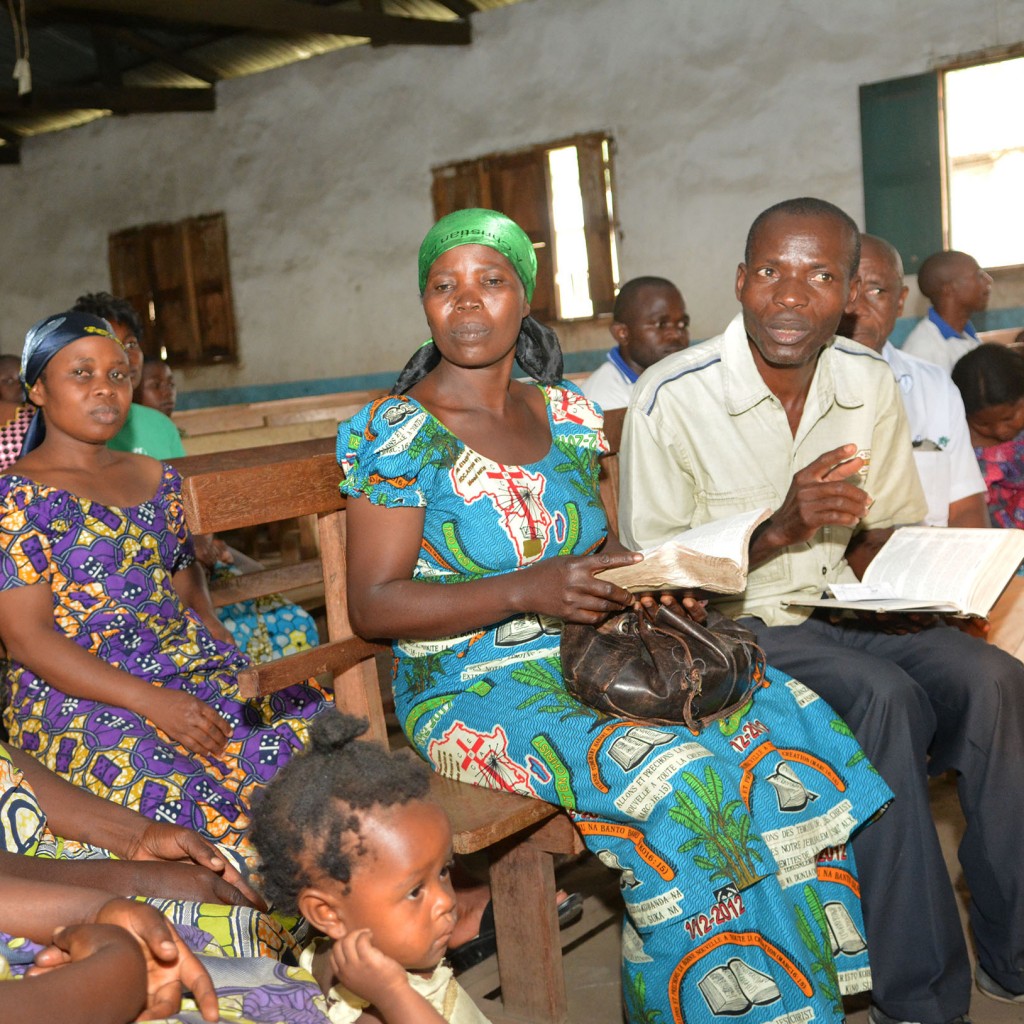IMA World Health/Emily Esworthy
The brick building is nearly empty and doesn’t even have electricity, but for the people of Nzenga – as in much of Africa – the local church is a sphere of influence, a meeting place, a trusted authority.
Since local buy-in is critical to influencing meaningful behavior change, IMA World Health and our USHINDI partner PPSSP have spent time cultivating a relationship with the Communauté Evangélique au Centre de l’Afrique (CECA) church in Nzenga to gain their support for USHINDI program messages and activities.
The USHINDI Project is working to overcome negative social attitudes toward women that underpin the epidemic of sexual and violence against women and girls in Eastern DR Congo. Here, “a dead rat is worth more than the body of a woman,” said Margot Walstrom, former Special Representative of the UN Secretary-General on Sexual Violence in Conflict.
Sinceviolence against women and girlsis so entrenched in the local culture throughout Eastern DR Congo, churches have become critical partners in reinforcing USHINDI messages about women’s rights, the importance of education for girls, and more, along with scriptural tenets supporting them.

Pastors of the CECA Church in Nzenga, DR Congo, describe the intervention that closed a local brothel. IMA World Health/Christopher Glass
And it is paying off. Last year, the CECA church in Nzenga decided to target a local brothel – and was successful in shutting it down and restoring the women to their families.
Feeling convinced that prostitution promotes sin, exploitation, and negative health consequences, CECA pastors decided they would approach the workers at the brothel to see if they could convince them to leave and start a new life.
In addition to the USHINDI messages about women’s rights and value, they also went equipped with 1 Peter 4:1-2: “Therefore, since Christ suffered in his body, arm yourselves also with the same attitude, because he who has suffered in his body is done with sin. As a result, he does not live the rest of his earthly life for evil human desires, but rather for the will of God.”
Their visit and message had a powerful impact on the women, who agreed to leave the brothel that day. One said, “I was an idiot in my life and didn’t find happiness. Through this preaching I now know what I must do.”
When the madam of the brothel protested and demanded money for her lost income, the church took up a collection to pay for the women’s freedom – $50 each – and talked with the madam about less harmful ways to make money. Her brothel is no longer operational.
The church then worked to reunite the women with their families and dispel the stigma within the community to help them have a truly fresh start. One of the women testified in front of the church, “Thank you for welcoming me, for liberating me from this dirty life and rescuing me. I am very happy to leave that life [as a prostitute] and start a new one under God.”
When asked what comes next, the pastor replied that the process was hard but worth it. “We need to do this for more girls,” he said.
The USHINDI Project is a five-year (2010-2015) USAID-funded project that uses a holistic approach integrating medical, legal, psychosocial, and economic support services to survivors and those affected byviolence against women and girlsin 10 health zones in the eastern regions of the DR Congo. USHINDI is managed by IMA World Health, and implementing partners include Program for the Promotion of Primary Health Care (PPSSP), HEAL Africa, and the Panzi Foundation. Technical partners include the American Bar Association Rule of Law Initiative, Save the Children, CARE, and Children’s Voice.


